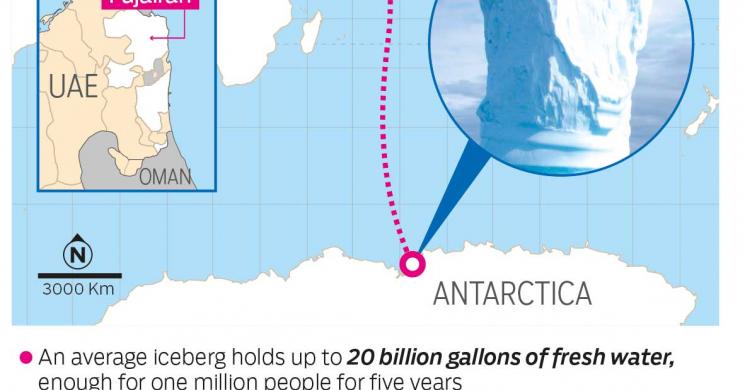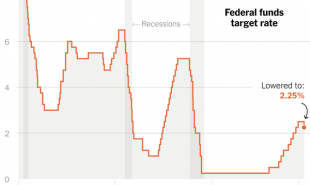
Firm to tow icebergs from Antarctica to Fujairah
Firm says it will begin towing icebergs from Antarctica to UAE to harvest fresh drinking water
An average gargantuan iceberg contains more than 20 billion gallons of water, enough for one million people over five years, said Abdullah Mohammad Sulaiman Al Shehi, managing director of National Advisor Bureau Limited headquartered in Masdar City.
Al Shehi told Gulf News in an interview on Tuesday that despite expected scepticism from naysayers, his firm has already run the iceberg transportation route and variables through simulators to help frame the feasibility of what he is calling the UAE Iceberg Project.

“Our simulator predicts that it will take up to one year [to tow an iceberg to UAE]. We have formulated the technical and financial plan. Towing is the best method. We will start the project in beginning of 2018,” Al Shehi said. “We want it mainly for the water. It could also be good for tourism and the weather.”
Icebergs do not melt easily given that as much as 80 per cent of the massive structures are under the water line and the white exposed ice above reflects sunlight and does not readily absorb the sun's heat.
Officials who spoke to Gulf News on Tuesday declined to comment in early stages of the project but confirmed they are aware of Al Shehhi’s environmental projects.
The sight of icebergs floating along the UAE coastline in the Arabian Sea could be a major new draw for tourists vacationing in the eastern end of the country, he said. Massive floating icebergs from the Arctic making their way south in the Atlantic Ocean past cities such as St John’s, Newfoundland, down the eastern coast of Canada draw tourists every year.
Al Shehi did not give precise distance for the length of the trip needed to bring an iceberg to be anchored off Fujairah’s coastline but Google Maps reports that it is 12,600km from the south pole to the intended UAE destination.
Antarctica is the world’s most southern continent and it is said to contain up to 70 per cent of earth’s fresh water.
While admitting there are big challenges to such operations especially in the high seas, Al Shehi said the ship would shepherd or guide the iceberg along the plotted track northward to the emirates.
Once offshore, Al Shehi said the firm’s water-processing operation will swing into high gear, chipping off blocks of the iceberg above the water line and then crushing the pure polar ice into drinking water which would be stored in large water tanks and then filtered through a water processing plant.
“This is the purest water in the world,” Al Shehi said.
Al Shehi declined to elaborate on the capital and operating costs involved in the project saying that it was proprietary.
The idea of harvesting icebergs is not new — one highly publicised effort in the 1970s to bring polar ice to Saudi Arabia was abandoned for price and technical challenges at the time.
Icebergs would draw rains to UAE
Bringing floating icebergs to the UAE would not only bring much-needed freshwater, according to Al Shehi.
The presence of new giant icebergs in waters off the UAE would also create micro-climates and would help bring more rain to the arid landscape, he said.
“It would create a vortex which would draw clouds from all over the region,” he claimed.
In a statement sent to Gulf News, Al Shehi contended that when the icebergs come into contact with the hot region air, “cold air gushing out from an iceberg close to the shores of the Arabian Sea would cause a trough and rainstorms across the Arabian Gulf and the southern region of the Arabian Peninsula all year round”.
“As the rising air expands, cools and condenses due to the decrease in air pressure ... water vapour is collected in the clouds, they become heavy and falls as rain.”
The iceberg project is part of a much wider transformative vision by Al Shehi’s firm called “Filling the Empty Quarter Project” aimed at greening the desolate Rub Al Khali desert.
Recently, Al Shehi announced an idea of building a subsea pipeline under the Gulf to connect some of the flows from Pakistan’s rivers to the UAE to bring life back to the desert.
Read more by Soren K.Group







